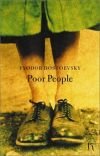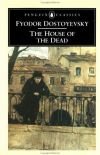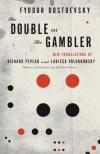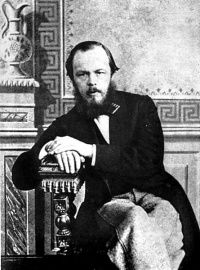Fjodor Michajlovič Dostojevskij

The Grand Inquisitor is a parable in Fyodor Dostoyevsky's novel The Brothers Karamazov. It is told by Ivan, who questions the possibility of a personal and benevolent God, to his brother Alyosha, a novice monk. The Grand Inquisitor is an important part of the novel and one of the best-known passages in modern …

The narrator and protagonist of Dostoevsky’s novel The Adolescent (first published in English as A Raw Youth) is Arkady Dolgoruky, a na•ve 19-year-old boy bursting with ambition and opinions. The illegitimate son of a dissipated landowner, he is torn between his desire to expose his father’s wrongdoing and the desire …

When Poor Folk was first published in 1846, Dostoyevsky — one of nineteenth-century Russia's most important authors — was just twenty-four years old. The novel brought him immediate critical and public acclaim. A poignant societal and physiological sketch, Dostoyevsky's masterpiece is written in the form of letters of …

"White Nights" is a short story by Fyodor Dostoyevsky, originally published in 1848, early in the writer's career. Like many of Dostoyevsky's stories, "White Nights" is told in first person by a nameless narrator; the narrator is living in Saint Petersburg and suffers from loneliness. He gets to know and falls in love …

The House of the Dead is a semi-autobiographical novel published in 1861-2 in the journal Vremya by Russian author Fyodor Dostoyevsky, which portrays the life of convicts in a Siberian prison camp. The novel has also been published under the titles Memoirs from the House of The Dead and Notes from the Dead House. The …

First published in 1846, Fyodor Dostoyevsky's novella "The Double" is a classic doppelgänger and the second major work published by the author. It is the story of Yakov Petrovich Golyadkin, a government clerk who believes that a fellow clerk has taken over his identity and is determined to bring about his ruin. …

“What I am writing now is a tendentious thing,” Dostoyevsky wrote to a friend in connection with his first outline for The Devils. “I feel like saying everything as passionately as possible. (Let the nihilists and the Westerners scream that I am reactionary!) To hell with them. I shall say everything to the last …

Bratři Karamazovi sociálně filozofický román ruského spisovatele F. M. Dostojevského, vydán roku 1880. Z ruského originálu přeložili Břetislav Hůla a Prokop Voskovec. Literárním eposem chtěl Dostojevský přehodnotit své dřívější životní postoje a pohled na člověka, tak jako na celou společnost včetně církve. Dílo bylo …

The Gambler brilliantly captures the strangely powerful compulsion to bet that Dostoyevsky, himself a compulsive gambler, knew so well. The hero rides an emotional roller coaster between exhilaration and despair, and secondary characters such as the Grandmother, who throws much of her fortune away at the gaming …

 English
English Español
Español Deutsch
Deutsch
